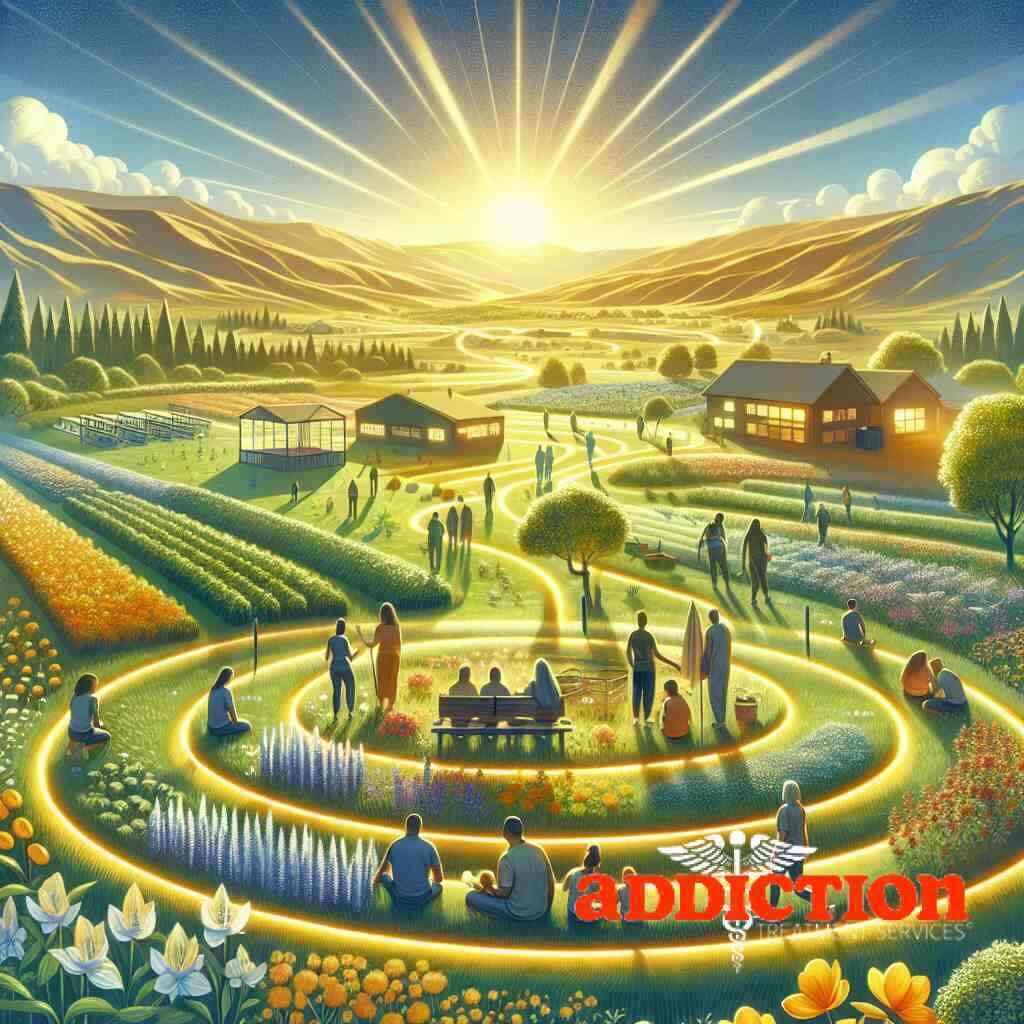 Posted On: 07/14/2025
Posted On: 07/14/2025Introduction to Behavioral Health in Addiction Recovery
Understanding the Intersection of Mental Health and Addiction
Understanding the complex relationship between mental health and addiction is critical in effectively addressing substance use disorders. Behavioral health plays a pivotal role as it delves into how emotions, behaviors, and thoughts interconnect with well-being. Mental health issues often co-occur with addiction, creating a dual diagnosis challenge that requires comprehensive intervention.Recognizing these intersecting factors is pivotal for optimizing recovery outcomes. By identifying and treating both aspects simultaneously, addiction treatment services can offer a more holistic approach to recovery, ensuring individuals receive the support they need for complete wellness.
The Role of Behavioral Health in Comprehensive Treatment Plans
Behavioral health is indispensable in formulating comprehensive addiction treatment plans. It provides a framework for understanding the root causes of substance use disorders. By addressing underlying behavioral patterns, treatment facilities can tailor interventions that resonate with individual needs. This holistic approach integrates various therapeutic modalities, ensuring a personalized recovery path. For an effective recovery process, incorporating behavioral health services becomes paramount. These services are designed to help individuals understand the triggers and patterns that fuel addiction, paving the way for sustainable recovery.
Why Recognizing Behavioral Health is Critical in Addiction Recovery
Integrating behavioral health into addiction recovery is crucial for long-term success. Recognizing the psychological aspects of addiction enables a deeper understanding of the individual’s struggles. It’s not just about addressing physical dependency but understanding emotional and mental health factors that contribute to substance misuse. This recognition is vital for relapse prevention and establishing robust coping mechanisms. Delray Beach intensive outpatient programs underscore this approach, emphasizing the need for ongoing mental health support in recovery. By prioritizing behavioral health, addiction treatment centers can empower individuals, equipping them with the necessary tools for lasting change.
Decoding Behavioral Health: Signs and Symptoms
Identifying Behavioral Patterns Indicating Substance Use Disorders
Recognizing behavioral patterns is vital for identifying substance use disorders. Individuals may demonstrate changes in their demeanor, such as increased irritability or sudden shifts in social circles. These changes often occur alongside declining performance at work or school, signaling deeper issues. Warning signs include neglecting responsibilities and constant financial troubles, possibly linked to sustaining their habit. Addiction treatment services emphasize the importance of recognizing these red flags early to provide timely intervention. Addressing these patterns can lead to the initiation of a comprehensive mental health assessment, setting the stage for effective recovery.
Recognizing Psychiatric Symptoms in Dual Diagnosis Cases
Dual diagnosis involves concurrently addressing mental health disorders and substance use disorders. It’s crucial to recognize psychiatric symptoms that may co-occur with addiction, such as anxiety, depression, or hallucinations. These symptoms often exacerbate the urge to use substances as a form of self-medication, complicating the recovery journey. Treatment centers prioritize understanding these complex dynamics to create effective care plans. By exploring dual care strategies, facilities can identify intertwined psychiatric and addictive behaviors, offering a more holistic approach to recovery. Engaging with mental health professionals skilled in dual diagnosis care is critical for personalized and effective treatment.
How to Spot Early Signs of Mental Health Issues in Addiction
Spotting early signs of mental health issues in addiction is key to effective early intervention. Behavioral health services impact recovery processes by focusing on initial indicators like sudden mood swings, withdrawal from loved ones, and loss of interest in usual activities. Recognizing these symptoms as potential warning signs can prompt individuals or family members to seek professional guidance. Addiction treatment centers emphasize early symptom recognition to mitigate further psychological decline and substance misuse. Early and proactive mental health support in addiction recovery plays a monumental role in enhancing overall outcomes, paving the way for comprehensive behavioral health care.

Comprehensive Behavioral Health Evaluation in Addiction Treatment Services
The Process of Conducting a Mental Health Evaluation
Conducting a comprehensive mental health evaluation is a fundamental component in addiction treatment services. This evaluation typically begins with gathering a detailed personal and family medical history, which helps identify any pre-existing conditions or genetic predispositions. Clinicians then engage the individual in structured interviews and standardized questionnaires to assess psychological health. This step is vital to ascertain any co-occurring mental health disorders, a frequent companion to substance misuse. State-of-the-art treatment facilities use this robust evaluation process to craft personalized recovery blueprints, ensuring that each individual receives tailored care. By engaging with seasoned mental health professionals, treatment centers can more accurately diagnose and address the intricate web of issues faced by those grappling with addiction.
Significance of Psychological Assessments in Treatment Planning
Psychological assessments hold immense significance in the treatment planning within addiction recovery. These assessments evaluate various cognitive, emotional, and behavioral aspects of an individual. They serve as a diagnostic tool to recognize intricate psychological disorders woven into the fabric of addiction, giving a clearer picture of the challenges. By identifying psychological health signs early, providers can orchestrate personalized treatment strategies. These strategies often encompass behavioral therapy, medication-assisted treatment, and support groups like alcoholics anonymous meetings, all designed to bolster mental resilience. When integrated into the treatment planning phase, psychological assessments empower the creation of efficient recovery pathways, minimizing relapse risks and enhancing overall well-being.
Integrating Psychiatric Evaluations in Addiction Treatment Centers
Ensuring the integration of psychiatric evaluations in treatment centers is crucial for successful outcomes in addiction recovery. Psychiatric evaluations go hand-in-hand with medical assessments to deliver a holistic picture of an individual’s psychiatric health. These evaluations help pinpoint specific mental illness symptoms in addiction that may require targeted interventions. In states like Georgia, treatment centers excel by embedding advanced psychiatric evaluations, setting the stage for sustainable recovery in their addiction treatment services in Georgia. This integrative approach underscores the significance of both understanding behavioral disorders and deploying evidence-based treatment interventions. By weaving psychiatric evaluations into the core of treatment strategies, addiction treatment services provide comprehensive care, supporting long-term recovery and emotional stability.
Tailored Treatment Approaches: From Crisis to Recovery
Implementing a Holistic Behavioral Health Care Model
Implementing a holistic behavioral health care model is essential in the journey from crisis to recovery. This model considers the interconnectedness of mind, body, and spirit, ensuring comprehensive care. Treatment facilities emphasize this approach by integrating therapies that address psychological, physical, and emotional well-being. Such a model involves using techniques like mindfulness, yoga, and nutritional counseling alongside traditional medical treatments. By adopting this holistic strategy, treatment centers can provide a nurturing environment conducive to a complete and balanced recovery process.
Furthermore, recognizing behavioral health issues early can significantly impact recovery outcomes. This model enables clinicians to tailor interventions that resonate on multiple levels, paving the way for sustainable change in recovery outcomes. Collaboration between addiction treatment services and mental health professionals ensures that individuals receive the most appropriate care for their needs. By focusing on this integrated approach, treatment centers empower clients to attain a full-bodied recovery, fostering resilience and long-term sobriety.
The Role of Intensive Outpatient Programs in Behavioral Health Management
Intensive outpatient programs (IOPs) play a pivotal role in managing behavioral health during addiction recovery. These programs offer a structured yet flexible treatment option for individuals who require ongoing support but do not need residential care. IOPs provide a spectrum of therapeutic modalities, including group and individual therapy, designed to address both addiction and mental health issues.
Through IOPs, patients can maintain daily responsibilities such as work or school while receiving comprehensive behavioral health management. This dual focus is crucial, as it allows individuals to practice new coping strategies and resilience skills in real-world settings. Programs such as these are especially beneficial for those with a dual diagnosis, as they provide tailored interventions that address the complexity of both substance use disorders and mental health conditions.
Research indicates that the integration of IOPs in recovery plans enhances treatment adherence and reduces the risk of relapse. By promoting sustained engagement in therapy and providing a supportive community environment, these programs facilitate ongoing healing and personal growth. Intensive outpatient programs serve as a cornerstone for long-term recovery, offering a bridge between initial treatment and the maintenance of a healthy, sober lifestyle.
Utilizing Mental Wellness and Coping Strategies in Recovery
Utilizing mental wellness and coping strategies is essential for successful recovery from addiction. These strategies provide individuals with the tools needed to manage stress, recognize triggers, and navigate challenging situations without resorting to substance use. Incorporating techniques such as cognitive-behavioral therapy and mindfulness meditation can help reshape thought patterns and foster emotional resilience.
Treatment centers offer an array of support systems designed to enhance mental wellness, which emphasizes the importance of self-care and personal growth. By participating in ongoing therapy and peer support groups, individuals can develop a robust network of resources to draw upon during difficult times. Understanding the role of mental health in addiction recovery empowers individuals to take charge of their well-being and actively pursue a balanced, fulfilling life.
Moreover, coping strategies learned during treatment can significantly improve the recovery trajectory. These strategies often involve the development of personal hobbies, physical activity, and relationship-building skills that contribute to a healthy and sustainable lifestyle. By fostering a strong foundation in mental wellness, individuals in recovery can enhance their overall quality of life, ensuring not only sobriety but also fulfillment and personal satisfaction. For more insights and resources on addiction recovery, explore the addiction recovery blog.
Supporting Mental Health in Addiction Treatment Services
Behavioral Health Resources and Support Systems
Behavioral health resources play a crucial role in addiction treatment services, offering a wealth of support systems that contribute significantly to recovery. These resources can include individual and group therapy sessions, psychoeducation, and peer support groups, all designed to foster emotional and psychological healing. Family involvement is often emphasized, as creating a supportive network can greatly enhance an individual’s ability to sustain sobriety. Addiction treatment services in Alabama recognize the importance of integrating these resources into comprehensive care plans, ensuring that individuals have access to a robust support system. By engaging with these resources, individuals can better understand their addiction, develop coping mechanisms, and create a foundation for long-term recovery success.
Role of Emotional Wellbeing Support in Relapse Prevention
Emotional wellbeing is a cornerstone in preventing relapse, as it equips individuals with the necessary tools to manage stress and emotional triggers effectively. Support systems that prioritize emotional health can significantly reduce the risk of returning to substance use. By incorporating therapies that address underlying emotional issues, such as cognitive-behavioral therapy and motivational interviewing, addiction treatment centers help individuals build emotional resilience. This approach facilitates a deeper understanding of personal triggers and the development of strategies to maintain stability. Mental health services in addiction recovery underscore the value of emotional support, recognizing that fostering a healthy emotional state is essential for sustaining long-term recovery.
Importance of Ongoing Mental Health Screening in Recovery Progress
Regular mental health screening is vital in monitoring an individual’s progress in addiction recovery and adapting treatment plans accordingly. These screenings can identify emerging psychological issues or the resurfacing of past mental health conditions that may impact recovery. By proactively addressing these concerns through regular assessments, treatment facilities can tailor interventions to meet shifting needs, ensuring comprehensive care. Behavioral health services impact recovery processes by maintaining vigilance in detecting and managing mental health challenges. This ongoing assessment is crucial for adapting therapy and support strategies, reinforcing resilience, and promoting a sustainable recovery journey. Incorporating regular mental health screening into addiction treatment protocols not only enhances care quality but also empowers individuals in their journey to wellness.

Conclusion: Embracing Integrated Care for Lasting Recovery
The Future of Behavioral Health in Addiction Treatment Services
As addiction treatment services continue to evolve, the future lies in embracing comprehensive and personalized approaches that integrate behavioral health. Advances in understanding the mental health role in addiction recovery will play a pivotal part in shaping more effective treatment strategies. Treatment centers are increasingly adopting innovative methods that aim to treat the individual holistically, considering both psychological and physical health needs, as outlined in the Ultimate Guide to Integrative Care Solutions. The integration of cutting-edge technologies, such as telehealth and digital therapeutics, offers promising avenues for enhancing access and monitoring recovery progress. Prioritizing the development and implementation of these innovations will support the evolution of services aimed at facilitating and sustaining recovery for those grappling with substance use disorders.
Key Takeaways for Recognizing and Addressing Behavioral Health
Recognizing the signs of behavioral health issues is crucial in the journey toward overcoming addiction. Early interventions, such as comprehensive mental health assessments and psychological evaluations, are instrumental in crafting tailored treatment plans. Understanding behavioral disorders and their interplay with substance abuse helps delineate effective treatment paths. By prioritizing the identification of dual diagnosis indicators and the employment of integrated treatment approaches, treatment centers can significantly enhance recovery outcomes. Engaging in continuous education on behavioral health patterns and symptoms ensures that both individuals and professionals remain equipped to address these complex challenges comprehensively. This knowledge empowers more individuals to recognize the signs early, seek appropriate help, and engage in effective recovery strategies.
Empowering Individuals through Comprehensive Behavioral Health Care
Empowering individuals in addiction recovery is about providing comprehensive behavioral health care tailored to their unique needs. This involves equipping them with robust coping mechanisms and mental wellness strategies vital for maintaining sobriety and overall wellbeing. Therapy models, such as cognitive-behavioral therapy and mindfulness training, play an essential role in fostering emotional resilience. Engaging with behavioral health resources and sustaining emotional wellbeing support are crucial in preventing relapse and ensuring long-term recovery. By leveraging resources like the addiction treatment services in Florida, individuals can access a wealth of support tailored to their journey. The goal is to create a strong foundation where individuals not only achieve sobriety but also thrive mentally and emotionally, leading to a fulfilling life post-recovery.
Frequently Asked Questions
Question: How does Addiction Treatment Services incorporate comprehensive mental health assessment in their treatment plans?
Answer: Addiction Treatment Services places a strong emphasis on conducting comprehensive mental health assessments as part of their holistic approach to addiction recovery. These evaluations are designed to identify any co-occurring mental health issues or psychological disorders that may have a significant impact on an individual’s addiction journey. By understanding the intricate interplay between mental health and addiction, the services provided can be tailored to address specific needs, ensuring an effective treatment plan. Our treatment facilities utilize structured interviews, questionnaires, and personal medical history analysis to gather detailed information, which is then used to create a personalized recovery blueprint that tackles both substance use disorder and underlying behavioral health challenges.
Question: In the Guide to Recognizing Behavioral Health at Addiction Treatment Services, how does the organization address dual diagnosis indicators in treatment?
Answer: In the Guide to Recognizing Behavioral Health at Addiction Treatment Services, we highlight the importance of addressing dual diagnosis, which involves the simultaneous treatment of mental health disorders and substance use disorders. Recognizing the psychiatric symptoms that often accompany addiction is essential for crafting an effective care plan. Addiction Treatment Services incorporates dual care strategies to address these intertwined behavioral and psychological issues. By collaborating with mental health professionals skilled in dual diagnosis care, we ensure that individuals receive a comprehensive and integrated treatment approach. This method not only treats addiction but also empowers individuals to manage mental health symptoms, ultimately enhancing recovery outcomes and promoting sustainable sobriety.
Question: What role do behavioral health resources play in the recovery process at Addiction Treatment Services?
Answer: Behavioral health resources are integral to the recovery process at Addiction Treatment Services. They encompass a range of support systems, including individual and group therapy, psychoeducation, and peer support groups. These resources are designed to foster emotional healing and provide a strong foundation for long-term recovery. By engaging with these behavioral health resources, individuals can gain a deeper understanding of their addiction and develop effective coping mechanisms. Family involvement is also encouraged to enhance the support network surrounding the individual. Our treatment centers ensure that these resources are woven into the overall care plan, facilitating a comprehensive approach to addiction treatment that supports both immediate recovery and long-term emotional and mental stability.
Question: How does Addiction Treatment Services prioritize mental health screening in the recovery journey?
Answer: At Addiction Treatment Services, regular mental health screening is prioritized as a vital component of the recovery journey. These screenings help monitor progress and detect any emerging psychological issues or resurfacing disorders that may affect recovery. By proactively addressing these concerns through regular assessments, our treatment facilities can adapt treatment plans to meet evolving needs. This vigilance in detecting and managing mental health challenges is essential for reinforcing resilience and maintaining a sustainable recovery path. Regular screenings empower individuals to stay on track with their recovery goals by providing essential insights that aid in tailoring therapy and support strategies, ensuring a high quality of care throughout the recovery process.
Question: How are intensive outpatient programs at Addiction Treatment Services essential in managing behavioral health?
Answer: Intensive outpatient programs (IOPs) at Addiction Treatment Services are essential in managing behavioral health during addiction recovery. These programs offer a structured yet flexible treatment option, allowing individuals to receive ongoing support while maintaining everyday responsibilities such as work or school. IOPs integrate various therapeutic modalities, including group and individual therapy, to address both addiction and mental health issues. This hybrid model is tailored to accommodate those with dual diagnoses, providing interventions that tackle the complexities of substance use disorders and co-occurring mental health conditions. By promoting ongoing therapy in a supportive community environment, IOPs enhance treatment adherence, reduce relapse risks, and provide a bridge between primary treatment and the maintenance of a healthy, sober lifestyle.


